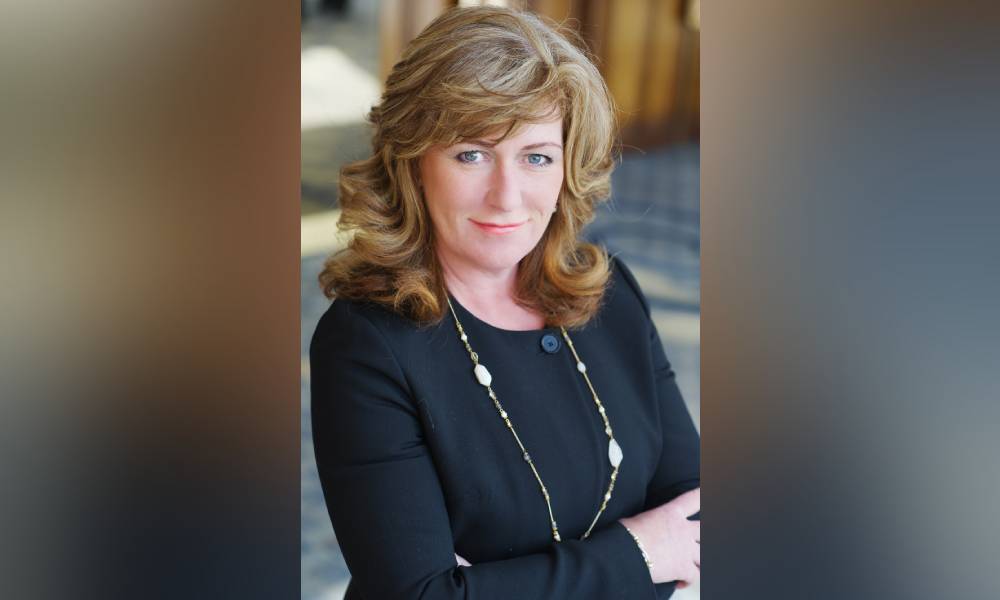Study behavioural economics to understand their overconfidence, risk aversion, control need, and lack of future understanding

Would you like to increase how much your clients trust you and follow your advice?
If so, you might want to take the behavioural economics course Manulife Investment Management is offering online.
It’s a six-hour credit course that focuses on the four biases people have in not accepting, and following, advisors’ advice. It also offers tactics to address the biases, so you can increase investors’ trust and comfort.
“Behavioural economics can show you why people make the decisions they do, especially related to money,” Catherine Milum, Head of Wealth Sales at Manulife Investment Management, told Wealth Professional, noting it takes a holistic view of the social, psychological, cultural, and emotional factors that play a role in people’s attitudes and the financial decisions they make. “It recognizes that people don’t necessarily act in their own best interests due to emotional biases, and then it seeks to eliminate those and guide them toward making more beneficial decisions.”
The course incorporates the research that Manulife recently released in The 2021 Value of Behaviourally Informed Advice Study. It looked at four reasons investors don’t seek financial advice: overconfidence as they overestimate their financial knowledge and skills, their risk aversion because they fear losing money, the illusion they can control random outcomes, and the fact they think that current conditions will last indefinitely.
The study, conducted online with almost 3,000 North Americans during March 2020, showed that investors were twice as likely to follow behaviourally informed financial communication advice, and follow it more closely, but also have a better perception of the financial professionals who offered it.
“Part of the reason we released the white paper was to really prove this works. It’s not just a fad. Many advisors have been in the business for their entire career and are unlikely to want to adopt it unless it helps their clients and creates better outcome,” said David Lewis, the President of BEworks Research Institute who has been working with Manulife. “The white paper compared conventionally-delivered advice with advice that’s delivered based on behavioural science insights, and we identified six really important key outcomes from it.”
“The big thing was that using behavioural economics increases the likelihood that clients will seek advice in the future, but it also increases the likelihood that they’ll actually follow it,” he said, noting only 13% of people with an advisor follow all their advice. The rest only follow some. “There’s no point getting advice if you don’t follow it.”
Lewis said the main reason people don’t follow advice is overconfidence. “In simple terms, we don’t know what we don’t know,” he said. He compared market investing to driving a bike, where clients may think they understand how it works, but they really don’t. So, they may listen to some advice, but assume they can manage on their own.
“The easy intervention is if you just ask people some questions, and they don’t know the answers, they’re going to be less overconfident and more open to seeking advice,” said Lewis.
“We’re also learning that instead of advisors flexing their knowledge, we need to speak more simply, and provide simple directed advice, since clients find more detail confusing. We can also share examples of financial challenges we’ve had in these conversations with clients,” added Milum, noting advisors can also simplify marketing materials
The next challenge is getting clients to take enough risks to overcome their risk aversion and focus on the long-term financial objectives that they want to achieve. Milum said behavioural economics shows people feel a loss twice as much as a comparable gain. That’s why they sell low when the market dips. Advisors can address that by getting a pre-commitment to stay the course, despite volatility, from their clients, then reminding them of it during the dips.
The third challenge is people have the illusion they can control random events when they can’t.
“When things go a little sideways, we want to do something to give us back that control we need,” said Milum. “When the market starts to go down, we want to do something to take back that control. So, we believe that by calling our financial advisors and telling them to do something, it helps with that control bias that we have.”
Advisors can deal with that in the same way they do clients’ risk aversion – get a pre-commitment from clients to stay the course to achieve their goals, even when things feel out of control.
Lastly, people can’t imagine their future selves – such as being retired – to save for it. “We’re so focused on now and the shiny new toys that we want to buy, the bigger house or new boat, that the financial advisor us competing with those,” said Milum. She recommended calculating the number of meals you’ll eat over 25 years – 54,750 if you eat three a day. Multiply that by $10 a meal, and you’ll need $547,000 just to eat. That makes retirement more concrete
Learning these biases, and some of the ways to address them, can help advisors improve the odds that their clients will listen to them and implement their advice so they can achieve their goals.
“When we did this in the study, people saw the behavioural advice as being more valuable. It also increased the trust in the advisor,” said Lewis. “That’s one of the most important things because, in our view, there is a crisis of trust in the industry where people don’t know who to trust, and they don’t trust the advisor. That’s where you get into things like meme stocks and buying Bitcoin and not diversifying your portfolio, so building that trust is critical.”
”The white paper really said you should use behavioural science when delivering communication advice,” he added. “So, that’s really the objective measure here: clients seek advice and follow it, and have better financial outcomes.”



